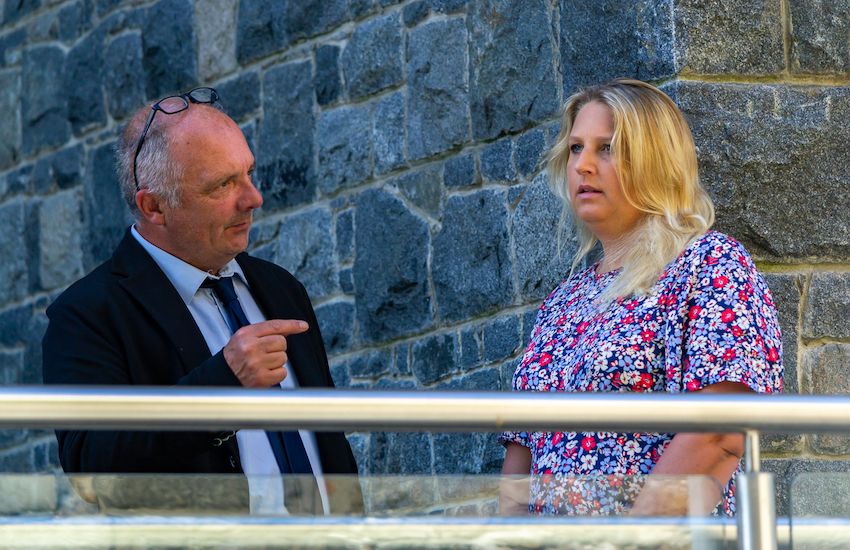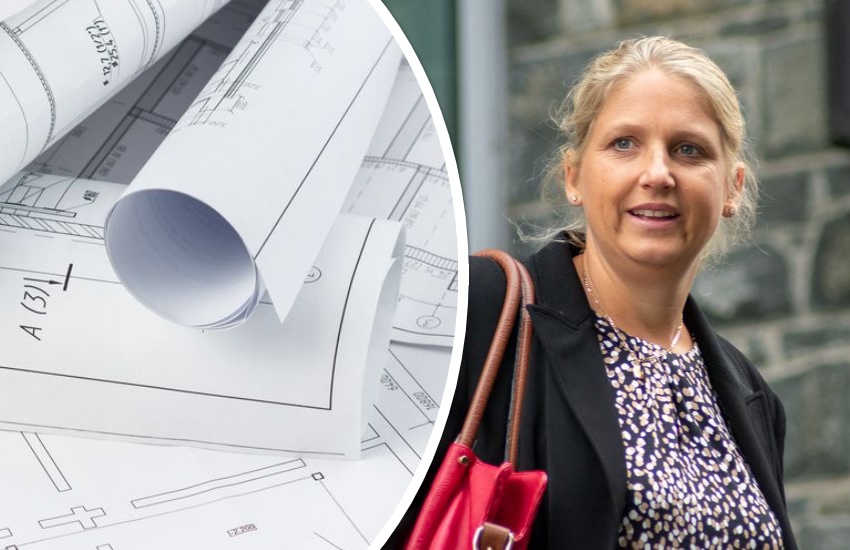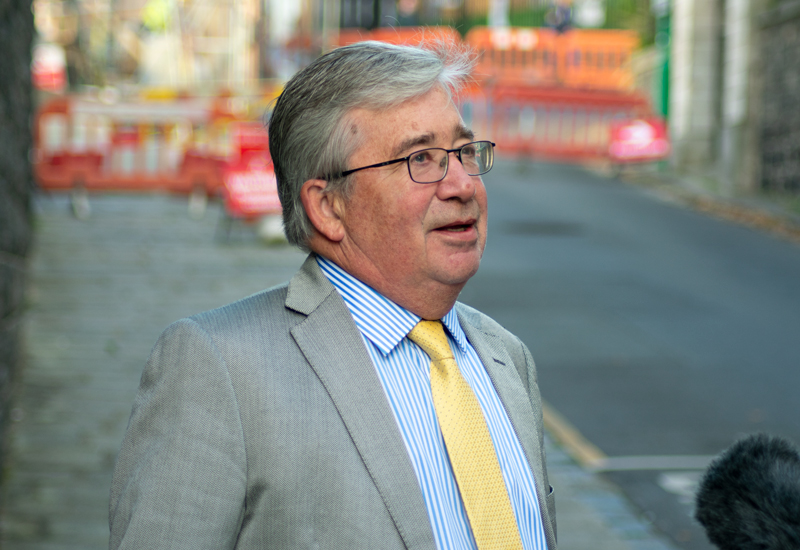


Two housing amendments to the Government Work Plan (GWP) were passed with strong support by the States’ Assembly yesterday.
Under the GWP, category one status will now be applied to examining whether developers can make a financial contribution – a tariff – equivalent to the value of land which would have been allocated for affordable housing, instead of providing a physical affordable housing contribution under planning policy GP11.
That amendment was proposed by Deputy Victoria Oliver, President of the Development & Planning Authority, and seconded by Deputy Mark Helyar.
Deputy Oliver said the tariff will initially only apply to developments over 20 units of accommodation, but a subsequent review will investigate applying it to sites of differing sizes.
The former Housing Action Group (HAG), which comprised Deputies Peter Ferbrache, Lindasy de Sausmarez and Peter Roffey, have also been directed to produce a “comprehensive overview” of States-owned sites by the end of the year, following a successful amendment laid by Deputy Neil Inder.
Deputy Inder said the plan should indicate industry capacity in a clear “easy to consume document with timelines”.

Pictured: Deputy Victoria Oliver led the successful amendment which will investigate a financial contribution from property developers in lieu of affordable housing units.
The States previously directed the D&PA to examine the case for developer tariff contributions in lieu of affordable housing units following the approval of the Island Development Plan (IDP) in October 2016.
The amendment states that this work stream was paused, but now seeks to “investigate this option which could potentially facilitate the implementation of existing housing permissions whilst still providing for affordable housing”.
In her closing speech, Deputy Oliver said the amendment had the support of the developer’s forum and that a senior officer said introducing tariffs would “help to inform the IDP review”.
She also suggested it could lower the land value of sites since the tariff provision would be a consideration before any purchases.
Deputy Roffey said his sole concern is that the island has “been blighted by the uncertainty of GP11.
“We need to remove that blight because it is really, really harmful in moving forward.”

Pictured: Deputy John Dyke has been critical of GP11 throughout this States term.
Deputy Simon Vermeulen supported the amendment on the basis that “it introduces a degree of flexibility into the planning process and provides another opportunity for home builders that might be interested”.
Deputy de Sausmarez said: “Deputy Roffey, Deputy Oliver and I met with developers in the last five or six weeks. Of course, if given the choice, developers will say they would rather not have GP11, but they were commendably honest in recognising the need for affordable housing.”
Deputy John Dyke pointed during debate to the fact that levels of home ownership dropped to 60.2% in 2021 and said the Assembly must discipline itself “to proposals which can be implemented before revisions to the Island Development Plan,” which could take years to come back before the States.
Deputy Carl Meerveld agreed that any plan with the scope of the IDP “is going to have issues,” and highlighted that legislative changes often take several years to have a tangible effect on private sector developments.
He said the amendment would result in proposed developments being granted planning approval faster than before.
Deputy Sam Haskins said even with the passing of the amendment “GP11 is here to stay in one way or another”.
Amendment six was carried by 32 votes, with three deputies abstaining and another four absent.

Pictured: Deputy Neil Inder wants a "comprehensive overview" of all States-owned land by the end of 2022.
Whilst introducing his amendment, which was seconded by Deputy Ferbrache, Deputy Neil Inder said the current situation with housing is unlike anything he has seen
“We’ve got literally no emergency housing… there’s lots of request for self-catering units… the private sector itself is failing due a lack of capacity,” he said.
He argued there should be an expectancy for a housing action group to produce a housing action plan.
Deputy Ferbrache said a comprehensive overview should state: “What have we got, how are we going to use it.”
But Deputy Lester Queripel questioned the purpose of the amendment, saying “all that sounds like is for a list of States-owned land… it seeks to do what is already happening and at the moment it seems like a duplication of effort”.
“An action plan should include a ‘definite commitment to build’, I can’t see the point of the amendment if that’s not what it seeks to do.”
Deputy Ferbrache admitted: “We’re not going to solve the problem, we may help in relation to the problem – not this day, but in the immediate future.”

Pictured: Deputy Lester Queripel argued the information sought through the amendment already exists.
Deputy Roffey claimed that any plan would not represent a “panacea” and doubted that it would provide solutions to the housing crisis.
He said, in terms of States land: “We’ve really not delivered anything significant… Fontaine Vinery was already in frame… we haven’t really released anything in terms of States property,” pointing to the Castel hospital site and Frossard House.
Deputy Lyndon Trott said “we do have to be very careful managing expectations,” and referred to proposed developments at Fontaine and Kenilworth vineries.
“If anyone in this Assembly believes that developments of over 270 houses will be under-way in Guernsey either simultaneously or within three months of each other they are living in a fantasy world.”
Deputy Trott emphasised there is a greater number of redundant bedrooms than ever before driven by an increase in the number of people living alone.
“I’m very eager the States maintains a sense of perspective, the community deserves that from us,” he added.

Pictured: Deputy Lyndon Trott said it was important for the Assembly to manage expectations in the context of housing.
Deputy Sasha Kazantseva-Miller similarly thought the amendment simply asks for a list of available land.
“Property Services are always trying to rationalise the portfolio,” she said.
Deputy Dave Mahoney, who is Policy & Resources property lead, said he thought the amendment was “self-explanatory” and said when the Property Service deliver plans, he will bring them to the States.
Deputy Neil Inder closed debate by saying: “Surely at some point you’ve got to stop buying plots and start building... all this needs to be in one single place.”
Amendment four was carried by 34 votes. One deputy abstained and another four were absent.
Pictured (top): Deputy Neil Inder (left) and Deputy Victoria Oliver.
Comments
Comments on this story express the views of the commentator only, not Bailiwick Publishing. We are unable to guarantee the accuracy of any of those comments.